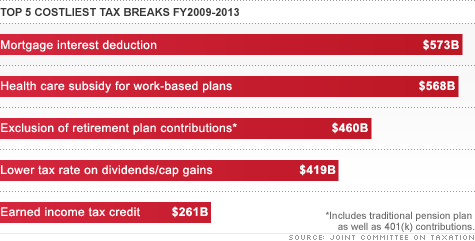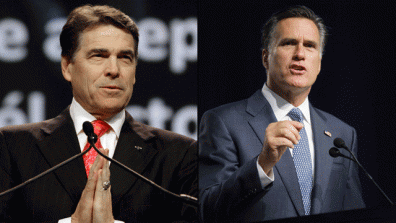Romney: “These are people who pay no income tax”
Where did this Mitt Romney come from?
Let’s be clear, up top. Romney’s remarks at a Boca Raton fundraiser did not just link unworthy people, Obama voters, and the number ’47 percent’. Romney linked unworthy people, Obama voters, ’47 percent’, and “people who pay no income tax.”

Romney anti-tax button
Who spoke those words?
Why, Mitt Romney, the GOP nominee for the White House:
“There are 47% of the people who will vote for the president no matter what. All right, there are 47% who are with him, who are dependent upon government, who believe that they are victims, who believe the government has a responsibility to care for them, who believe that they are entitled to health care, to food, to housing, to you-name-it. That that’s an entitlement … And they will vote for this president no matter what … These are people who pay no income tax … My job is not to worry about those people. I’ll never convince them they should take personal responsibility and care for their lives.”
Did Romney miss his entire campaign over the past two years? Since when did he of all people equate paying federal income tax with personal responsibility?
(Note: I do, to some extent. Not he.)
Watching the tape, I found the casual they-pay-no-income-tax comment more jaw-dropping than the rest. (Had Romney just learned that he had to write a check to the IRS for 2011?) The candidate’s unbecoming dismissal of half the population is hardly news–aside from its exposure–nor is his dismissal of peace in the Middle East. This is basically the corporate GOP mindset. These are the same people, after all, who have abortions in their own families if they so choose but who are perfectly willing to subscribe to party platforms illegalizing the procedure if it will help them consolidate policy on matters dearer to them. That those policies do not benefit the overwhelming majority of the population is a point about which most GOP officeholders, or future lobbyists, have repeatedly shown themselves to be indifferent.
But elevating paying your income tax to a moral standard?
Who is this man?
Bob Hope must be spinning in his grave.
Retreating to common sense–it is a truism that no one likes to pay taxes. That’s one reason why this country, with its ideal of widespread literacy, still relies so heavily on ‘hidden’ taxes that are destructively recessive, such as sales taxes and ‘user fees’, etc. No one likes to pay income tax, although some people are patriotically proud of how much they contribute. Anti-IRS jokes have been a staple of a certain kind of humor at least since Bob Hope. Hope’s delivery and diction tended to be mild-mannered, not Tabasco, but could not have been confused with pro-tax. Like Romney’s candidacy early on, they went over well with the white-shoes-white-belt crowd that are Romney’s traditional base.

bleahh
Romney himself has acknowledged a lack of fondness for taxes. To do him justice, Romney has said openly–even on the campaign trail–that he himself uses every available mechanism to reduce his taxes:
“ROMNEY: Let me also say categorically, I have paid taxes every year, and a lot of taxes.
My view is I have paid all the taxes required by law. I don’t pay more than are legally due.”
More broadly, the notion that paying taxes is bad is hardly a subtext in this year’s Republican campaign.
The evidence on this point, in fact, gives new meaning to the old phrase ’embarrassment of riches’. See among numerous examples romney’s public remarks on Aug 24:
“In calling for a broader, simplified tax code, Republican presidential candidate Mitt Romney said Friday that bigger businesses, in knowing how to utilize loopholes in the tax code, are “doing fine in many places” compared to small businesses.
“We’ve got to make it easier for small businesses,” Romney told a crowd of about 300 people at a high-dollar fundraiser in Minnesota. “Big business is doing fine in many place- -they get the loans they need, they can deal with all the regulation. They know how to find ways to get through the tax code, save money by putting various things in the places where there are low tax havens around the world for their businesses. But small business is getting crushed.””
One looks in vain for criticism in Romney’s comments about big businesses not pulling their weight, feeling entitled, etc., in connection with paying no income tax. It’s no wonder the biggest guns in the GOP, especially some rightwing media personalities, are jumping all over Romney for all of a sudden getting religion about paying your income tax. I don’t remember the last time George Will, Charles Krauthammer or Bill Kristol stepped forward to support same.
Then we have Romney’s choice of a running mate, Paul Ryan (who is also running for Congress in Wisconsin, and has a strong challenger, Rob Zerban).

The Zerbans, Wisconsin
The same day that Romney made his “big businesses are doing fine” comment, Ryan said much the same thing:
“By plugging loopholes, which are uniquely enjoyed by higher income individuals, you’re reducing their ability to shelter their income from taxation . . .”
Needless to say, the Romney-Ryan campaign has not included specifics on what ‘loopholes’ would be cut MORTGAGE INTEREST DEDUCTION. The Romney-Ryan insistence on extending all Bush tax cuts for the wealthiest, eliminating even the remaining U.S. inheritance tax, and lowering the income tax for corporations does not suggest that the loopholes would be only those enjoyed by the wealthiest among us MORTGAGE INTEREST DEDUCTION.
To return to that “they pay no income tax” line–
The problem with Romney’s comments is not only that they were impolitic, inaccurate and mean-spirited. They were also confused. You cannot at one and the same time campaign against taxes, and elevate paying your fair share of taxes as a moral standard. You cannot openly acknowledge that the tax code already favors the wealthy and big businesses–as both Romney and Ryan have done–and then successfully claim that it’s the poorer citizens who are getting away with something.
Except when you’re talking privately to a cluster of wealthy individuals who already tell themselves that.
Orwell lives.
Speaking of impolitic remarks, there was a slideslip into accuracy in Romney’s “big businesses are doing fine” comments, which is one reason they were so widely quoted. Analyses, including this one by CNBC, have corroborated the finding that, indeed, the one percenters are doing fine using available tax breaks. The New York Times summarized some of the ways Aug. 10, the Journal Tribune Aug. 25. Plenty of further information is available.
Not that the one percenters are the only ones, of course. The question of who is not liable for federal income tax under the current tax code is now getting some clarification it has long deserved, thanks to Romney. Here among others is a good run-down by the Christian Science Monitor.
In fact, on why Romney’s conflating non-income-tax payers with 1) Obama voters and 2) unworthy people is as inaccurate as it is ugly, let’s take a leaf from Elizabeth Barrett Browning, and count the ways.

Non- federal income tax payers, by state percentages
Factor Number One: Region or State
The nonpartisan Tax Foundation published a report in 2010 showing that paying federal income tax varies widely by state. The ten states with the largest percentage of non-payers? They include nine states–Idaho, Texas, and southeastern states including Mississippi, Alabama, Georgia–likely to go for Romney. Of the ten, all but one–Florida–is conventionally designated a ‘red state’, and Florida has a Republican governor and legislature.
Factor Number Two: Age
Florida also has a sizable retired population. As this fuller breakdown by the Tax Policy Center reminds us, one cohort paying less federal income tax is the elderly. Senior citizens on Social Security benefit from tax expenditures that Romney and Ryan have claimed, on the campaign trail, to support. The oldest voters, be it noted, are the only age group of voters among whom Romney bests President Obama.
Factor Number Three: Low Income
The Center on Budget and Policy Priorities reports that the main reason people don’t pay federal income tax, when they don’t, is that their incomes are too low for them to be tax liable. Here Romney is on firmer ground, so to speak. True enough, many of the poorest households do not support him–except when they are also seniors, or Southern whites. A number of them, including households with elderly members or Southern whites, also receive Social Security Supplemental Security Income (SSI), disability aid, Medicaid, WIC, unemployment benefits or some other form of public assistance. So presumably a Romney-Ryan tax plan will try to catch more of the nation’s poorest households in a higher tax bracket. Those are the indications so far, both from Ryan himself and from the 2012 GOP platform.
Factor Number Four: Military Service
Federal income tax on compensation for serving in the military is offset in several ways. Compensation received for service in a combat zone, for example, is not subject to federal income tax. There are also state income-tax exclusions for military pay in various states. By the way, the states with the best exclusions are not necessarily red states. Cash-strapped red states are at least as likely as any other states to limit the income tax exclusions.
Factor Number Five: High-Net-Worth Individuals and Corporations
On not paying taxes at the upper end, you can find copious information in various glossy sources. A quick hint here, but really Romney and Ryan’s own comments–and the scant information so far released in Romney’s own tax returns–give the picture. If you want to have more fun, and enjoy scenic views of golden beaches and sun, you can read up on off-shore tax havens. And of course numerous top corporations make tax avoidance part of their ongoing strategy. They generally poor-mouth while doing it, too. Where are Romney and Ryan on these entities, perennially ready to portray themselves as victims?
Sad to say, some of the households and individuals characterized by Governor Romney as takers will vote for him anyway. Their local newspapers and television news channels may fail to clarify his remarks or to correct the tax arithmetic. Their willingness to believe it’s different when you accept government aid while simultaneously being white will undoubtedly be catered to by the campaign. That these are some of the same households hurt worst by Romney-Ryan policy won’t change their votes.
But the fact remains that the real one-way-streeters comprise those responsible for the mortgage-derivatives debacle, those who benefit financially from it, and those who oppose any process that would lead to retribution or reimbursement. Only racial politics could make the GOP imagine that any large proportion of the country can be made to forget who was responsible for our biggest crash since the Great Depression.




































